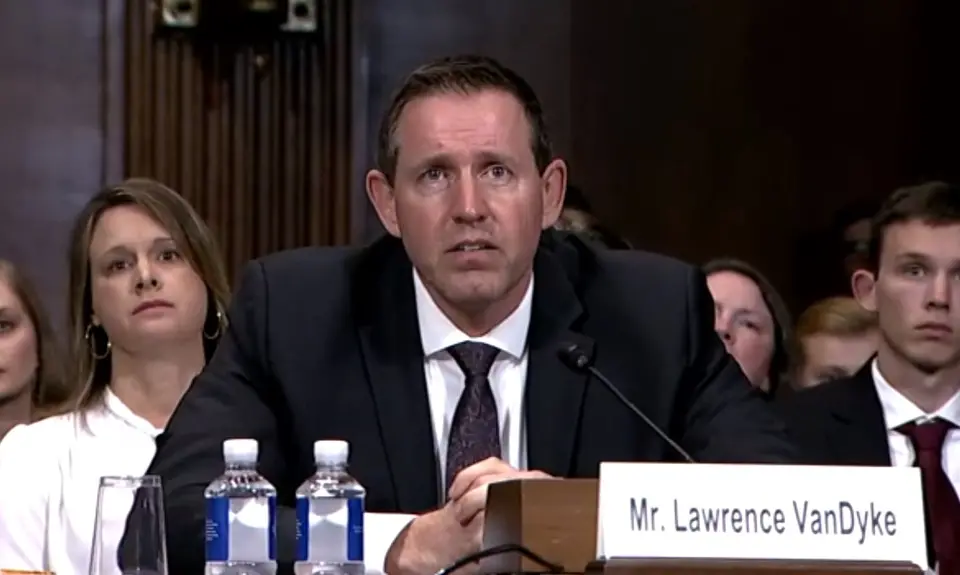“Our Courts, Our Fight” is a blog series documenting the harmful impact of President Trump’s judges on Americans’ rights and liberties and the need for the Senate to confirm President Biden’s federal court nominees to help counteract these effects . Supreme and appellate court cases in the series can be found by issue and by judge at this link.
Trump Judge Lawrence Van Dyke authored a decision dismissing claims by a non-profit agency employing disabled people that the city of Eugene, Oregon and its employees had illegally retaliated against it. Van Dyke was joined by Trump Judge Daniel A. Bress in the Ninth Circuit panel decision DePaul v. Miller. The panel’s decision overruled the district court’s finding that the city may well have violated the agency’s rights by terminating a long-held contract in retaliation for a lawsuit filed by one of its employees.
The agency, DePaul Industries, is a Qualified Non-Profit Agency (QRF) employing people with disabilities. Oregon Law gives QRFs priority in procuring government contracts if the QRF’s bid meets the basic job requirements. DePaul had two long-running annual contracts to provide security in Eugene’s library, parking garages, and performing arts center. The city renewed these contracts over 13 consecutive years with no noted issues.
In May 2016, the city sought bids from armed security providers to take over operations at these facilities, ultimately hiring another security company when DePaul’s contract expired. The city did not notify DePaul of any performance issues or its intent to switch to another provider. The switch occurred at the same time a DePaul employee filed an unrelated lawsuit against the city. A city attorney, Benjamin Miller, stated in an email that he thought “stopping contract negotiations … may go further for getting DePaul to cooperate.”
DePaul filed suit against the city and Miller, arguing their refusal to renew the contract was an act of retaliation violating DePaul’s due process rights. Miller sought to dismiss the suit, arguing he had qualified immunity as a city employee.
The district court allowed the suit to proceed, rejecting Miller’s claim that he had qualified immunity from suit as a matter of law. The court held that the legal preference Oregon law gives QRFs and the fact that the city had consistently renewed DePaul’s contract may have given DePaul a constitutionally protected property interest. The district court ruled that because determining whether this interest existed involved questions of fact, ultimately a jury should decide whether Miller had qualified immunity and illegally retaliated against DePaul.
Trump judges VanDyke and Bress, joined by a third judge, reversed the district court’s rulings, holding that Miller did have qualified immunity as a matter of law because DePaul failed to show its contract with the city constituted a clearly established constitutional right. Previous cases establish that contracts can be constitutionally protected property interests in a wide variety of circumstances. However, Van Dyke maintained in his opinion that because the district court did not cite a case specifically discussing Oregon’s QRF law, it did not demonstrate that the city violated a clearly established right in ending its contractual relationship with DePaul.
Public officials should not be above the law. Van Dyke’s decision effectively places them there by requiring a near-exact match between a previous and current case to overcome qualified immunity, setting a dangerous precedent for future acts of retaliation. This case demonstrates the importance of confirming Biden judges who will hold government employees to account for illegal and discriminatory actions, as part of our fight for our courts.
Note: Andrew Kliewer is a law student fellow at People For the American Way.
